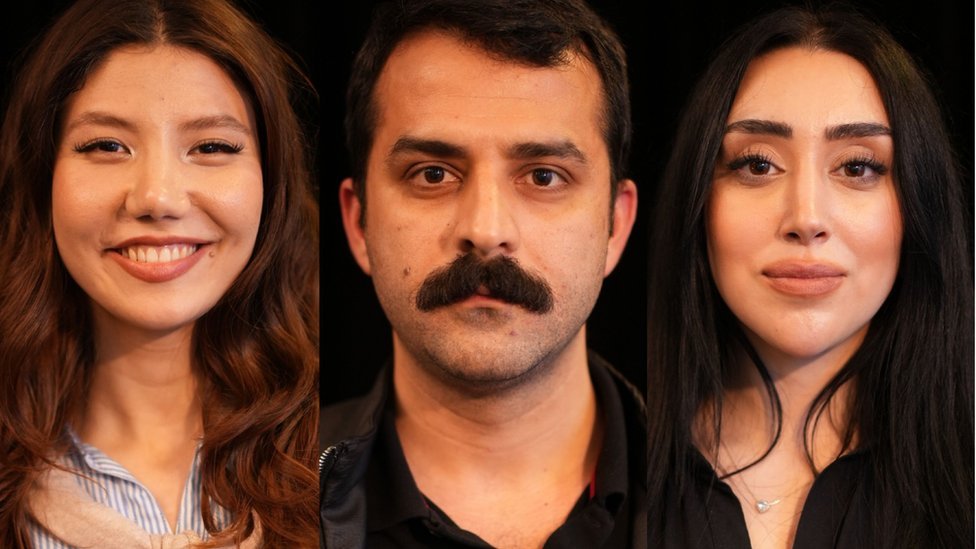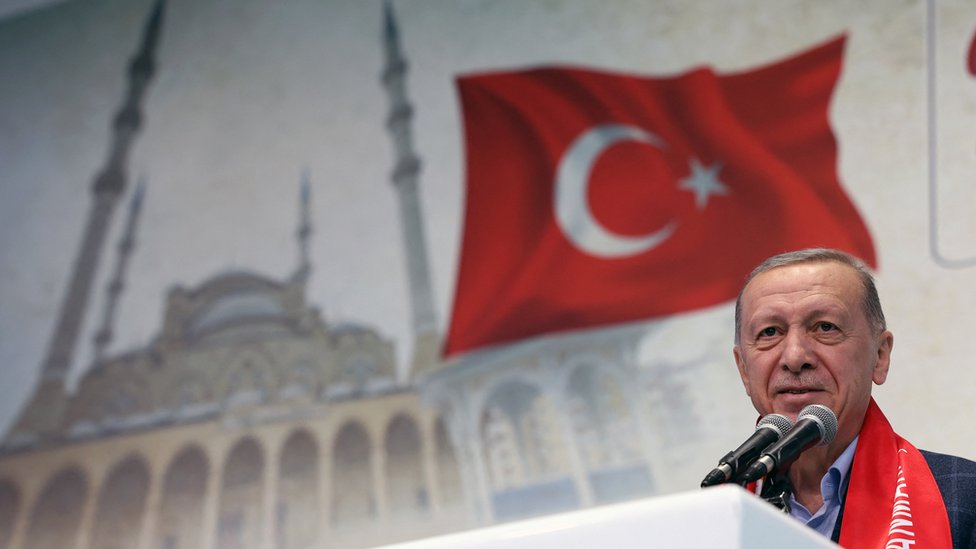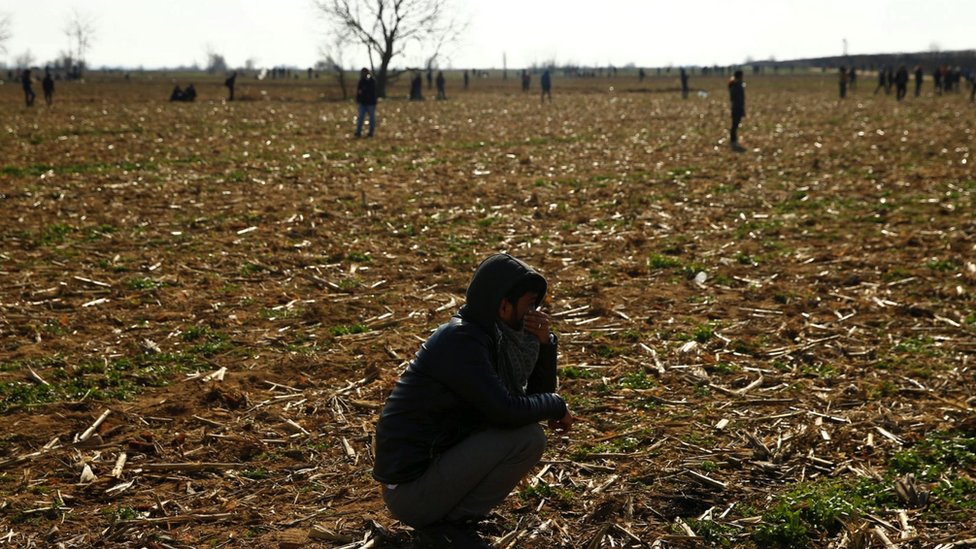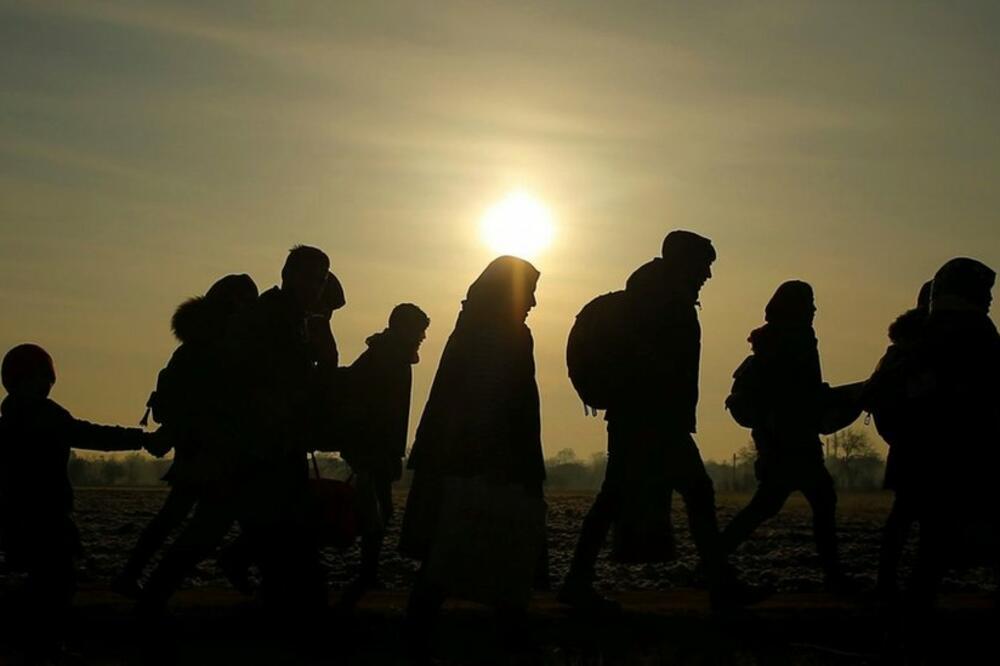"The Turks are a hospitable nation, but we already have enough refugees," says Omer Faruk Chechen, a XNUMX-year-old lawyer from Istanbul.
He voted for the nationalist, anti-refugee candidate Sinan Ogan in the first round of the May 14 presidential election.
"Not only Syrians, but also Afghans, Ukrainians, all other nationalities, we've had enough. While my nation is struggling to make ends meet, refugees in Turkey are enjoying the privileges of free public funds and education, and that's not fair, people can't take it anymore," he adds.
Elif Arslan, a twenty-four-year-old engineer from Istanbul, agrees with him.
"The United States of America is also a country that receives many immigrants. But the difference is that we don't have enough resources, capital or economic power to receive as many migrants as America," she says.
- Elections in Turkey: The key to victory in the hands of young people and women - can they threaten Erdogan
- Presidential elections in Turkey: Now it's official - Erdogan and Kilicdaroglu are going to the second round
- A simple guide to Erdogan's toughest election yet
Anti-refugee sentiment
Omer and Elif's stance against refugees is supported by a large part of Turkish society.
Turkey has accepted more Syrian refugees than any other country, with around 4 million people currently registered.
Rampant inflation, a free-falling domestic currency and a cost-of-living crisis are contributing to growing anti-refugee sentiment in the country.
"We see that they can now have a better life in Syria than during the war," adds Elif Attis, a XNUMX-year-old child development specialist.
"And Syria wants its people back. Time for them to come back."
The repatriation of all refugees is what Turkish President Recep Tayyip Erdogan stands for.
He wants to extend his rule to a third decade, and his main rival Kemal Kilicdaroglu, the candidate of the six-party opposition alliance, is promising the same in the hope of winning the votes of the nationalist electorate in the May 28 runoff.

"We'll send them back"
So what will happen to the nearly four million refugees in Turkey after the elections?
Until recently, President Erdogan said that he would never return any Syrian to their country.
But in the days leading up to the second round of elections, he suddenly started announcing that Turkey would repatriate more Syrians than before.
Speaking to state television channel TRT Haber on Monday, May 22, President Erdogan said:
"Four hundred and fifty thousand refugees have already returned to the briquette houses we built. Now we have a goal of one million refugees returning to new houses that will be built in northern Syria."
However, he did not specify when that process would begin.
He added that the plan for this could be discussed in negotiations with the Syrian government after the second round of elections.

Syrian settlements
Turkey under Erdogan has already built dozens of settlements in northwestern Syria with the help of Turkish NGOs.
"Normalization of relations" with Syria is a policy advocated by both President Erdogan and Kilicdaroglu, which would enable the return of refugees.
In January 2023, President Erdogan stated that he would meet with Syrian President Bashar Al-Assad to "establish peace" in the region.
But speaking to Russia's RIA-Novosti news agency in March, the Syrian president said he was willing to meet with Erdogan on the condition that Turkey withdraws its forces from northern Syria - which is unlikely to happen anytime soon.
But Turkish Foreign Minister Mevlut Çavuşoğlu had a relatively lenient approach to refugee repatriation.
On Monday, May 22, he said that not all Syrian refugees will be sent back, because the country needs labor in agriculture, industry and markets.
"Normalization" with Syria
Kilicdaroglu, known for his calm and collected nature, is taking advantage of the growing anger of the people towards the way Erdogan's government has handled the country's refugee problem.
He toughened the tone of his promises during the election campaign and vowed to return all refugees to their countries of origin.
- Black gold: Who makes money from Syrian oil and how much
- Why the war in Syria has been going on for 10 years
Criticizing the government's "open door" policy towards refugees fleeing the war in Syria, Kilicdaroglu said: "Erdogan, you have knowingly let 10 million refugees into Turkey. You have even started selling Turkish citizenship to import votes," but did not provide any evidence for that claim.
"This is how I promise: I will send all the refugees home as soon as I am elected president, period," he said.
On May XNUMX, while visiting the earthquake-stricken city of Hatay in southern Turkey, Kilicdaroglu repeated his campaign motto: "We will never, never allow Turkey to become a warehouse for refugees."
Hatay, located on the border with Syria, received a large number of refugees.
"Complaints about refugees that we hear in Hatay are similar to those from 81 provinces in Turkey. Do something before the refugees take over the country," Kilicdaroglu said in an address to the locals.
He previously disclosed plans to return displaced Syrians to their native country within two years after reaching an agreement with Syrian President Bashar al-Assad, guaranteeing their safety, in coordination with the United Nations.
Kilicdaroglu also threatened to withdraw from an agreement with the European Union under which Turkey agreed to accept millions of refugees from Syria, preventing them from crossing into EU countries and seeking asylum there.
In exchange for that, Turkey was to receive six billion euros.
Kilicdaroglu claims that the EU has not fulfilled its side of the deal.

In March, responding to a social media post by a media organization asking him what would happen to the deal with the EU, he said: "I've been very clear on this issue from the beginning, Turkey comes first."
Is it legal to send refugees back?
So, can refugees be forced to return home?
Is it in accordance with international law?
According to Birol Baris, deputy head of the Center for Refugees and Migrants of the Istanbul Bar Association, it is not legally justified to send refugees back without guarantees that the conditions that forced them to flee their country have improved.
Speaking to the BBC's Turkish-language journalist Burak Abataj, he said: "It is crucial to also ensure that they genuinely want to return on their own. In other words, the conditions of their return should be investigated and they should not be forced to return while the process is called 'voluntary'."
Dr. Neva Ovunç Ozturk from the Faculty of Law of Ankara University also believes that it is possible to achieve the voluntary return of Syrians, but "it is difficult to guess how many would do it".
What about forced returns? Are they possible?
According to experts who spoke to the BBC in Turkish, this would depend on the assessment of international organizations about the situation in their homeland.
But under the current circumstances, citing a recent United Nations report on Syria, Dr. Ovunç Ozturk says it would not be possible to force Syrians to return to their country because the situation there is still believed to be "unstable."
And so, while the fate of refugees in Turkey after the elections depends on the election results, their status will most likely be at the very top of the priorities of both candidates and their governments' agendas.
Although both candidates differ on many political views, the presence of refugees in the country is probably the only thing that both have promised to solve.
Additional reporting: Burak Abataj, BBC Turkish
Follow us on Facebook,Twitter i Viber. If you have a topic proposal for us, contact us at bbcnasrpskom@bbc.co.uk
Bonus video:




